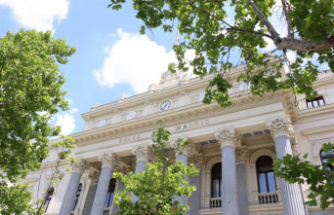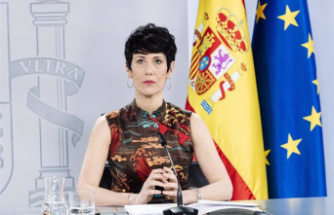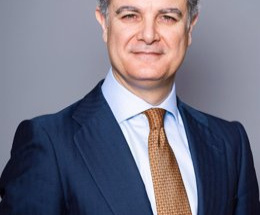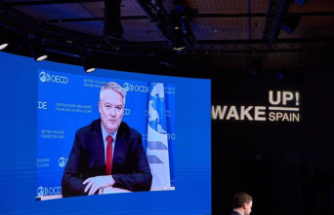This is one of the most essential aspects of the european construction. One of the most complex, too, and one of the most controversial. The budget of the Union arouses fantasies, indignation and curiosity. If some see it as a foundation of a powerful Europe, able to compete with the giants of the chinese and americans, others point to a mismanagement limiting the margins of manoeuvre for national and impoverishing the people. A few days of the next european elections, Le Figaro back on that folder sprawl.
● what is voted on the european budget?first, the european budget, which must be in balance, is voted in a framework called "multi-annual financial framework of the european Union' (PSC). It is established on seven years and "translates Union priorities into financial terms". Proposed by the european Commission, it is then validated by the Parliament and the Council. The one currently in place covers the period 2014-2020. It fixed a maximum ceiling of expenditure of 959,51 billion euros in commitment appropriations, an amount less than the framework of 2007-2013. Within this global envelope, each area of expenditure is also capped. For example, the chapter "sustainable growth", which includes the CAP, may not exceed 372,9 billion euros.
" frameborder="0" scrolling="no" style="border:0;"> Beginning in may 2018, the european Commission presented its tracks for MFF 2021-2027. Its proposal is an increase from the current framework: brought to 1135 billion euros (without taking inflation into account is 1279 billion in current euro), it aims to respond to the major issues of our time, such as climate change, new threats in terms of security, the migration crisis, or technological change. Brussels wants to give itself additional means to show the height of these challenges. The document must be submitted to the european Council "in the fall of 2019".
" READ ALSO Our folder dedicated to the european elections
Each year, within this multi-annual framework, the Commission proposes a budget for the following year. It is discussed by the Parliament and the Council, with the participation of the member States. The negotiations may be long and bitter, because nations are often unwilling to see the expenses multiply.
● How is financed the european budget?In 2018, the income of the Union amounted to 145 billion euros, which correspond to credit payment, no commitment. These funds are powered by four main sources. The first, and, in the past, the most important, is made up of traditional own resources . It is a question of customs duties levied on imports from countries outside the Eu, and contributions on sugar and isoglucose, as well as agricultural levies, i.e. taxes on imports of agricultural products covered by the CAP. In 2018, these resources weighed 16% of the total revenue, or € 23 billion.
" READ ALSO - How the european Union could save billions, according to a think-tank
Then, the VAT is a contribution of member States which corresponds to the amount of VAT collected at the rate of 0.3% on a harmonised tax base between the member countries of the VAT they collect. It accounted for 12% of the resources of the Union in 2018, approximately 17 billion euros.
Third, the States pay to the Union a GNI : each year, the members of the Union provide a percentage of their gross national income (GNI) in Brussels. It amounted to 0.71% in 2017. Originally thought to complete, at the margin, the other parts of the budget, it now represents by far the main resource of the portfolio. In 2018, it has provided 71% of the budget, more than 103 billion euros.
" READ ALSO - minimum Wage, unemployment, taxation: the tracks of the candidates in the european elections
Finally, the Union may rely on other marginal revenue , such as taxes on the salaries of staff of the european institutions or the fines on undertakings that infringe the competition rules. All of these expenditures represents less than 1% of the total budget.
Off-budget, the EU also has funds to feed some programs, such as the european development Fund (EDF).
" frameborder="0" scrolling="no" style="border:0;">
On the long term, the revenue paid to the european budget have increased, for several reasons. First, the number of member countries of the Union has grown over the years. Then, the portfolio has expanded mechanically so that the continent was getting richer, thanks to the GNI-based resource. Finally, Brussels has seen its prerogatives, multiplying in recent years: borders, trade, innovation, banking system, foreign policy... the new missions of the Union have increased its needs, and its resources.
" frameborder="0" scrolling="no" style="border:0;"> In addition, all countries do not contribute also to the european budget. The revenues depend on the GNP of the Member and must contribute according to the principle of equity: the richer countries contribute more, while those who are poorest receive more. Germany, the United Kingdom, France, Italy and Spain are the largest contributors. With the Brexit, the Eu will lose € 10 billion in annual revenues.
" frameborder="0" scrolling="no" style="border:0;">
● How the Eu spends its budget?This is the central question. The more complex, also. To better understand this folder, let's take the example of the budget 2018. We'll talk about here in payment appropriations. A total of 160 billion euros of commitment appropriations (or 145 billion in payment appropriations) budget is divided into five areas: the smart and inclusive growth , (45,9% of the total, $ 66.6 billion euros. Research and innovation, renewable energy, single market, transport, SMES) ; the sustainable growth (38,6%, to 56 billion euros. CAP, common fisheries policy, rural development, protection of the environment) ; the security and citizenship (2,05%, to 2.9 billion euros. Justice, border protection, asylum, public health, consumer, culture, youth) ; Europe in the world (6,13%, to 8.9 billion euros. Foreign policy of the european Union) ; and european administration (6,66% of the total, € 9.6 billion. Operating expenses, human resources, equipment).
" frameborder="0" scrolling="no" style="border:0;"> These funds finance institutions and programs, which have différemment the member countries. For example, Erasmus + weighed in 2018, $ 2.14 billion euros), while the systems EGNOS (European Geostationary Navigation Overlay Service) and Galileo (the european GPS) received 718 million euros. The two aspects of the common agricultural policy accounted for, in total, nearly 55,04 billion, of which € 43,18 for the European agricultural guarantee fund (EAGF) and 11,85 for the European agricultural fund for rural development (EAFRD).
" frameborder="0" scrolling="no" style="border:0;">
Some of the expenses are of benefit specifically to countries outside of the Union, a reality that is regularly denounced by political leaders sovereignists. Thus, the instrument for pre-accession assistance (IPA II), with a budget of 11.7 billion euro for the period 2014-2020, for the benefit of Albania, Bosnia and Herzegovina, Kosovo, Montenegro, the Republic of northern Macedonia, Serbia and Turkey. The european neighbourhood Instrument (ENI), meanwhile, may be allocated to several countries in the Middle East, the Maghreb and eastern Europe with a budget of 15.4 billion euros over the same period. In a report published last year, the european Court of auditors recalls that Turkey is required to collect, under IPA II, 9 billion euros between 2007 and 2020. It is also critical for the management and control of these funds on the spot.
" READ ALSO - What place occupies France in Europe on the economic plan?
In addition, the european Union's budget must be spent in a fair manner - and not equal - between the member countries. In other words, a less developed State will receive more funds, especially to allow him to catch up. Conversely, the richest countries, including France, are part of the net contributors. The Hexagon has also paid 16,23 billion euros to the eu budget in 2017, and loses, from an accounting point of view, euro 2.73 billion. In front, Germany remains the largest country contributor (deficit 8,66 billion in 2017), when Poland enjoyed, in fine, the more the Union (with 8.87 billion euros in 2017).
" frameborder="0" scrolling="no" style="border:0;">
● How is controlled the european budget?The "good control and execution" of the budget of the Union is controlled by three instances. First, the european Commission shall transmit to the european Parliament the accounts, accompanied by a financial statement, at the end of each fiscal year. Internally, each european institution should normally control its own spending.
Two bodies outside complete this audit work. The "national authorities" do a large part of the "initial control of revenue and expenditure". For example, the outflow of bodies such as the european agricultural guarantee Fund are controlled by the "authorities of the member States". Finally, the european Court of auditors is responsible to examine and certify the eu budget ex-post. Founded in 1977, and is independent of other european organisations, it has no legal power but provides audit reports scrutinized carefully. Elevated to the rank of institution in 1993, she "warns of risks, provides assurance and offers guidance to policy-makers in the EU" on the management of public finances. It allows citizens to know "how their money is used."
" READ ALSO - who to vote For on the 26th of may? Compare the programmes of the candidates
finally, the european Parliament is scheduled to vote on the "release" of the Commission, in other words, to accept its balance sheet. In case of refusal, the Commission must respond more quickly to the reservations expressed by meps, to resolve points of contention. "The refusal of the discharge can be equated with a demand of resignation of the Commission", said the Parliament, which reminds us that the thing took place in December 1998, after accusations of fraud, nepotism and mismanagement made against the executive in brussels. At the time, the team led by luxembourg's Jacques Santer, and which was part of former prime minister Edith Cresson, had been pushed outside to "escape a censure motion", in the words of Jacques Santer himself.
Date Of Update: 23 May 2019, 00:00












